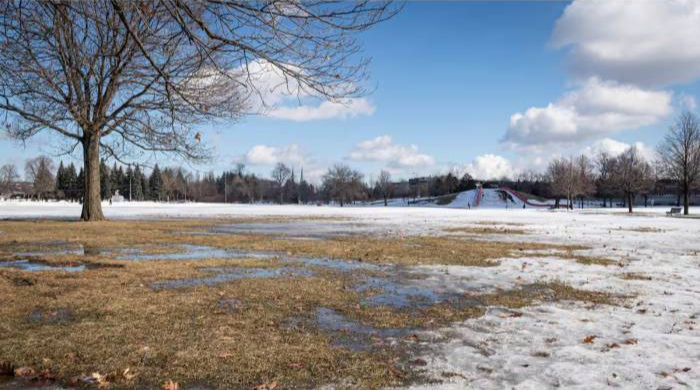Construction deadline time: How long does it take to build a house?
- coraliefortin076
- Jul 31, 2025
- 7 min read
Updated: Aug 21, 2025

Building a house in Quebec is an exciting project that fuels many families' dreams. But how long does it actually take to go from plan to handing over the keys? At PlanMaisonQuébec, we understand that the time frame is as important as the design itself.
This complex issue depends on a multitude of factors, from the size of the project to the seasons, including administrative procedures and the availability of professionals. Let's take a step-by-step look at how PlanMaisonQuébec can effectively support each of these aspects to ensure a smooth, timely construction process.
1. The size and complexity of the project
When considering construction time, size and architectural complexity are key factors. For small single-family homes, ranging from approximately 1,076 to 1,615 square feet, construction can be completed in a reasonable amount of time, between six and nine months. These timelines, particularly observed in the Gatineau region, are realistic under favorable weather conditions and without major unforeseen circumstances related to materials or labor.
However, for larger homes, exceeding 2,150 square feet, the timeframe can extend from eight to eighteen months. These projects require complex coordination, particularly during the design, approval, and construction phases, as well as the possible use of specialized materials or sophisticated architectural techniques.
PlanMaisonQuébec makes it a point of honor to support its clients according to the size of their project, by adapting the construction schedule, managing expectations while optimizing processes to meet planned deadlines.

2. Essential steps and construction phases
The overall construction time is based on a precise sequence of steps, where each phase advances the project but can also cause additional delays depending on circumstances.
The first essential step is planning and design. Next comes the process of obtaining building permits, a step that can take several weeks or even a month depending on local requirements.
At PlanMaisonQuébec, we strongly recommend working with professionals familiar with Quebec standards, which greatly speeds up approval.
Then comes site preparation: clearing, excavation, and foundations. Together, these steps can take anywhere from a few weeks to several months, especially if soil studies are required and depending on the specific characteristics of the site.

The construction of the main structure, including the walls and roof, requires machinery, materials, and specialized teams. For some builders, this phase is estimated to take between eight and twenty weeks, with timescales varying depending on the complexity, type of foundation, and weather conditions. Once the house is watertight and airtight, the interior work phase begins, which includes electrical installation, plumbing, insulation, and partitions. This work can last from several weeks to several months, depending on the scope of the project.
Interior finishing touches such as painting, flooring, woodwork, and plumbing fixtures also take a significant amount of time. Finally, final cleaning, inspection, and key handover can add another one to two weeks.
The entire process, from planning to delivery, can take six months for a simple project, up to more than twenty months for highly elaborate custom homes.
Thanks to its experience, PlanMaisonQuébec offers rigorous planning for each of these phases. We integrate into our estimates the realities on the ground, the administrative calendar, the weather and the coordination of stakeholders.
3. The impact of seasons and the Quebec climate
Quebec's climate, characterized by significant temperature variations and distinct seasons, plays a central role in construction planning. The year is divided into four seasons, each of which has a different impact on deadlines, the types of work that can be done, and on-site efficiency. Understanding these dynamics is essential for smart planning. At Plan Maison Québec, we help our clients take advantage of the best seasonal windows.
Spring: the resumption of construction sites
Spring generally marks the beginning of the peak construction season in Quebec. As soon as the ground thaws, construction sites resume after the winter break. This is the ideal time to begin foundation, earthworks, or structural work. However, you must remain vigilant regarding the presence of water due to snowmelt, which can make some sites difficult to access. Delays can be caused by excessively wet soil or periods of persistent rain. Plan Maison Québec often recommends taking advantage of this period to initiate administrative procedures in advance, so that work can begin as soon as conditions permit.

Summer: optimal conditions for structural work
Summer is by far the most favorable season for most construction projects. The long days and constant temperatures allow for rapid progress on the structural work: walls, roofing, exterior cladding, and window and door installation. The mild weather reduces the risk of delays due to construction site shutdowns. It's also the busiest time of year, which can lead to delays if contractors or materials aren't booked in advance. With Plan Maison Québec, we plan precisely to ensure the presence of tradespeople at the right time and minimize wait times.
Autumn: strategic transitional period
Fall is often underestimated, but it can be a very productive season. Temperatures are still mild enough to continue exterior work, especially early in the season. It's also an excellent time to begin interior work if the house is already closed (roof and windows installed).
However, you need to be strategic: the further into the season, the greater the risk of frost, rain, or early snowfall. Plan Maison Québec recommends aiming to complete the exterior phase before November, and then moving on to interior work, sheltered from the elements.

Winter: slowdown and finishing touches
The Quebec winter makes outdoor work difficult. Frozen ground, heavy snow, extreme temperatures, and short days severely limit work. However, this isn't a wasted time: interior work can still be carried out efficiently. Electrical, plumbing, insulation, drywall, painting, flooring, kitchen cabinets—all these elements progress smoothly when proper logistical support is in place.
At Plan Maison Québec, we coordinate this work to maximize the use of the cold season, while respecting the ventilation and heating constraints required for the materials.

4 . Unforeseen events and managing delays
No construction project, even the most perfectly planned, is completely immune to unforeseen events. These hazards can affect construction progress, sometimes significantly. Understanding why these delays occur and how they are managed will help you better prepare for a realistic schedule.
Plan Maison Québec is committed to reducing the impact of these delays through proactive planning and tight site management. Here are some common unforeseen events encountered in Quebec and their rationale:
Extreme weather conditions
Although summer is the most favorable season, it is not without its challenges. Weeks of rain, extreme heat, or storms can force a temporary halt to work, particularly outdoors. For example, pouring a concrete slab in very humid or cold weather can compromise its long-term strength.
Why this causes a delay: Worker safety and construction quality require compliance with certain weather conditions. If these conditions are not met, work must be postponed.
Delays in delivery of materials

The construction supply chain is subject to many variables: material availability, increased demand, import delays, transport strikes, or supplier delays. Even the slightest delay in receiving windows, doors, or beams can completely shut down a construction site.
Why it causes a delay: Construction phases are interdependent. If a critical piece doesn't arrive, it can stall the entire construction process.
Lack of specialized labor
Quebec has been experiencing a labor shortage in the residential construction sector for several years. Sometimes, some subcontractors, such as electricians, plumbers, or siding installers, are unavailable when expected, which delays deadlines.
Why this causes a delay: The construction site works like a chain. If one link is missing, all the following links are delayed, especially if the task in question is crucial to moving forward.
Changes requested along the way
Some clients, as their project takes shape, wish to make changes to the initial plan (moving walls, adding windows, modifying the staircase, etc.). While understandable, these adjustments often require a technical reassessment, a budget readjustment, and a reorganization of the work sequence.
Why this causes a delay: Any change requires a pause in execution while we reschedule, order new materials, and adjust schedules.
At Plan Maison Québec, we anticipate these unforeseen events through constant communication with our clients, partners, and suppliers. Our contingency plans allow us to react quickly and adjust schedules to limit the impact on the delivery date.
5. Overview of delays in Quebec
The average construction time for a house in Quebec varies between 6 and 18 months, depending on the nature of the project. But this general range masks much more nuanced realities. At Plan Maison Québec, we help our clients understand what these figures really mean for their project.
For an average-sized single-family home project, with well-prepared plans and a clear lot, it's realistic to aim for 8 to 10 months of construction, including administrative procedures.
If you're building a cottage in a remote area, you'll have to expect potentially longer construction times due to logistics, site accessibility, and sometimes a shorter construction season. These projects can extend to 12 to 16 months, or even longer.

Detached garages or simpler extensions can be completed in just a few months, often between 3 and 6 months, depending on the time of year and the materials required.
Custom, high-end homes, or homes with specific technical features (eco-friendly materials, advanced home automation systems, complex architecture) require more extensive planning, with lead times of up to 18 months or more.
The timeframe doesn't begin with the first shovel, but from the design phase. This means including the time needed to create plans, obtain permits, and coordinate with suppliers and contractors. With Plan Maison Québec, you benefit from a clear vision of the timeline from the very first discussions.
Finally, geographic region also plays a role: municipalities have different permit review times, some territories have specific environmental standards, and labor shortages vary by area.
By choosing Plan Maison Québec, you benefit from a team that is fully familiar with local realities and that adapts its support to your project, your location and your schedule.
Conclusion: construction deadline time for a house in Quebec
Managing the construction deadline timeline for a house in Quebec is an ambitious task, but it's achievable with effective planning, careful management of each phase, and appropriate professional support. At PlanMaisonQuébec, we put our expertise at your service to design, plan, and coordinate each phase of your construction or renovation project.
Whether you're considering a house, a cottage, or a garage, we adapt our approach according to the size, complexity, and seasonal constraints. Our expertise in local administrative procedures, site coordination, and contingency management allows you to gain peace of mind and efficiency in your project.
Your project deserves precision, clarity and expert support: let's do it together.



Comments